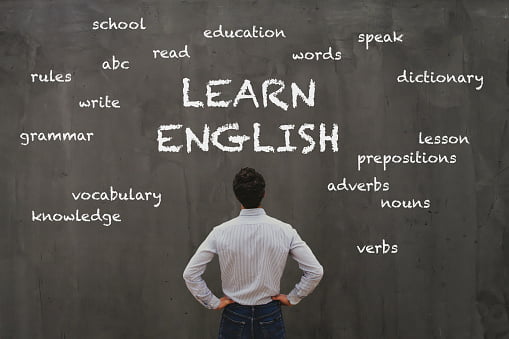Are you looking for a English verbs of list? Fret not. Here is a concise guide to the list of verbs with examples. However, before we get into the list of verbs, let’s briefly review the definition of a verb.

What is a Verb?
A verb is a term that defines an action, an event, or a situation in its most basic sense. It describes the action of the subject of a statement. Verbs are typically the most essential words in a phrase; without them, the sentence would be incomplete. However, how can one distinguish a verb in a sentence?
Typically, verbs are used following a noun or pronoun. In such instances, the nouns or pronouns are referred to as subjects.
For example:
- Jude went to the cinema.
In this case, the action of “went” to the cinema is the verb. It precedes the noun and subject “Jude.”
Learning the words in each verb list can help you develop your English-speaking skills.
What are Action Verbs?
Each verb on a list of action verbs expresses the action of a subject in a phrase. The list of physical verbs contains action words.
In other words, the words in a list of physical action verbs typically describe a physical action performed by a person or item. An action verb refers to a specific motion made with the body or a tool to complete an action. For instance, let’s begin with a concise list of action verbs:
- Talk
- Close
- Speak
This short list of action verbs describe things that can be done with your body. Let’s consider the linking verbs list.
Linking Verbs List
There is a list of verbs that don’t mean anything at all. Instead, these words describe a state of being, like a relationship or a condition. They are also called linking verbs, and the list of linking verbs below includes them.
The words on the list of linking verbs connect the subject of a sentence to details about that subject. In other words, linking verbs connect the subject to a predicate noun or predicate adjective.
You could also call a list of linking verbs a “being verbs list.” This is because the words in a list of linking verbs show how something is. Most of the being verbs on the list are different ways of saying “to be.” A being verb list should also include “become” and “seem.”
These “being” verbs are used with subjects in both the past and the present. For examples, see below the list of linking and “being” verbs. In the past, you should use “was” or “were” instead of “be” and “is/am/are” instead of “be” in the present. As an example:
- Kate was being worrisome.
- They are being caring.
- Hilary was being afraid of Daisy.
- We appear to be sane.
The being/connecting words in the preceding sentences are included in the list of being verbs that follow. The words in the list of linking verbs can relate the subject to other terms in a sentence.
Helping Verbs List
Now that we’ve reviewed the list of connecting verbs, let’s discuss helpful verbs. A supporting verb supports or assists the main verb. The list of helping verbs contains two words: auxiliaries and modals.
Both auxiliaries and modals enhance the meaning of the primary verb or being word. They can also define the duration of physical or mental action. Additionally, they can emphasize your phrases and the occurrence of an event.
Auxiliary verbs (such as those in the following list of assisting verbs) extend the primary verb and help indicate time, tense, or potential.
Examples of auxiliary verbs:
- Williams is going out for dinner.
- We have finished our assignment.
Modals represent possibility, capacity, and anticipation. We have a list of modal assisting verbs. Let’s start with a few examples to comprehend their usage better.
Basic examples of modals:
- Wilson may want to talk to you again.
- Alexa must go to work today.
To Wrap Up
A verb is a word which describes an action. Verbs can also be classified into a couple different groups: action, linking, and helping verbs.
Explore All Verb Booster Articles
Helping Verbs Guide: Meaning, Types, and Sentence Examples
Verbs are a key part of every good sentence. Main verbs help tie the pieces of a sentence together, while…
Exploring the Meaning of the Main Verbs and Examples
English writing requires you to have outstanding expertise in particular grammar rules. These concepts are vital for the reliability and…
Transitive Vs. Intransitive Verbs — A Quick Guide
Whether or not an object is necessary for the verb to express a complete thought, a verb is either transitive…
Do This Now! List of Imperative Verbs
No one likes to be bossed around by someone else! However, sometimes you have to be bossy to get stuff…
Helping Verbs or Auxiliary Verbs — Knowing the Correct Choice
Verbs are the backbone of every sentence in the English language. A sentence without verbs is like a lemonade without…
Verbs of Action vs. Auxiliary Verbs
Verbs are a crucial component of every sentence. You cannot communicate a complete thought without verbs. However, did you know…
